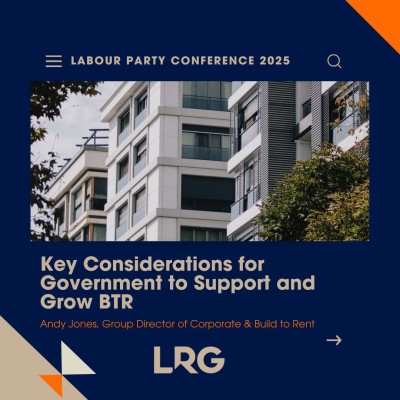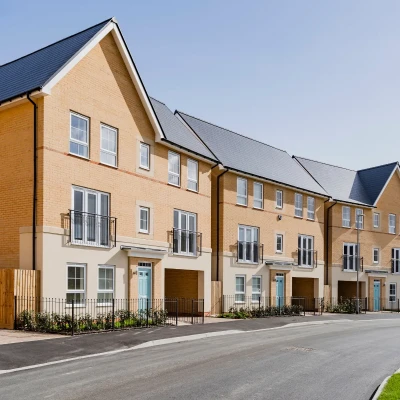Policy, Planning and Progress: Overcoming Bottlenecks in Build to Rent

Policy, Planning and Progress: Overcoming Bottlenecks in Build to Rent
The Build to Rent (BTR) sector has demonstrated its ability to deliver high-quality, professionally managed homes that meet modern housing needs. Yet despite its rapid growth, the sector faces challenges that threaten to slow delivery. From planning complexities to evolving policy frameworks, these bottlenecks remain central to the conversation about how BTR can scale effectively in the UK.
Planning: Navigating Complexity
One of the most significant obstacles for BTR projects lies within the planning system. Securing approvals can be a slow and inconsistent process, often varying significantly between local authorities. While some councils embrace BTR as a way of meeting housing demand, others remain cautious or uncertain about how to classify and support developments – particularly for single-family rental.
This lack of consistency can create delays, increase costs, and ultimately restrict the ability of developers and investors to bring forward much-needed homes.
Policy Shifts: The Renters’ Reform Bill
In parallel, ongoing policy discussions – most notably the Renters’ Reform Bill – present both opportunities and challenges for the sector. The bill’s ambition to create a fairer, more transparent rental market is welcome, but its implementation will require careful management to avoid unintended consequences.
The professional management standards already embedded in BTR developments mean the sector is well placed to lead in delivering the bill’s objectives. Yet the pace of policy change, coupled with ongoing political debate, adds complexity for investors considering long-term commitments.
Collaboration as the Key to Progress
A recurring theme within the BTR industry is collaboration. As Richard Berridge, Rental Advisor, Blackbird Real Estate Consultants put it: “We need to collaborate… policymakers, planners, investors… to enable delivery at scale.”
For the sector to thrive, there must be greater alignment between government, planning authorities, developers, and operators. Clearer policy guidance streamlined planning processes, and targeted incentives could all help accelerate delivery, ensuring the UK meets its housing needs while supporting investor confidence.
The Role of Education and Advocacy
Another barrier to progress is perception. Misconceptions about rental housing, particularly single-family rental, still exist. Educating stakeholders about the benefits of BTR, from providing stable homes to fostering long-term communities, is critical. For many local authorities, understanding that BTR delivers not just units, but sustainable communities, can help unlock cooperation.
Looking Ahead
The consensus within the sector is clear: bottlenecks can be overcome, but only through partnership and dialogue. The potential of BTR to transform the rental landscape is enormous but realising this requires structural support.
At Three Sixty Space, our role is to bridge these gaps – working with investors, developers, and policymakers to ensure projects are viable, compliant, and ultimately successful. By tackling these challenges head-on, we can accelerate delivery, unlock investment, and provide the high-quality homes that the UK urgently needs.

Contact Us
Got a question, general enquiry or something else?
You may also like
Since we started in 1987 we have grown to one of the UK’s largest property groups, we can save you time and money by offering a range of services and expertise under one roof.



